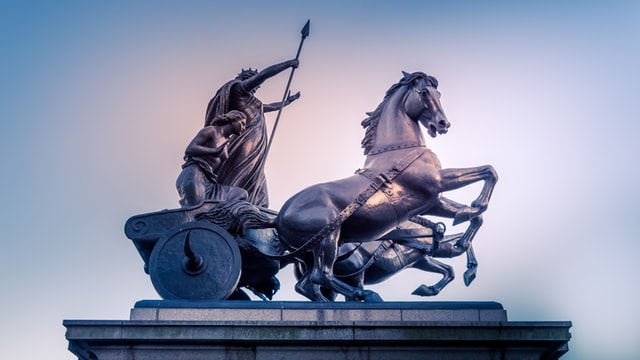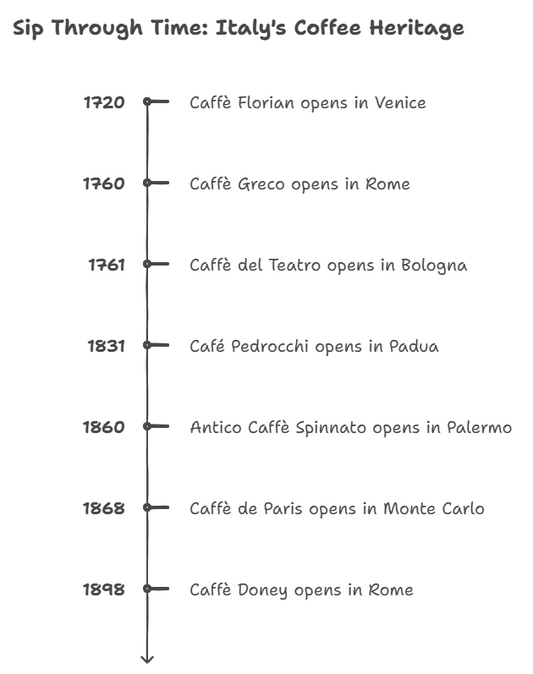Rome's great rise and fall were good learning points for many historians.
What can we learn from Roman civilization? Rome's early success came from assimilating its conquered enemies to grow its taxable citizens. Rome's fall came from a chaotic and corrupted public institution, with social and economic inequalities that citizens lost faith in the system due to greedy tyrants and leaders.
Rome didn't have to fail; it failed because Romans foolishly believed Rome would last forever. What could they have done differently, and when could they have done it?

What can we learn from the Fall of Rome
Edward Watts, professor of history at the University of California, San Diego, and author of " Mortal Republic: How Rome Fell into Tyranny," spoke to Vox on the parallels and differences between the Roman and American republics.
When I started teaching Roman history, the main questions from students were always about comparing the end of the Roman empire with the state of the American empire, and this was
There’s a pivotal period in Rome, around the middle part of the second century BC, in which there’s an economic revolution that displaces a lot of people who had belonged to a hereditary aristocracy and moves them off the top economic rungs of the state.
I think that’s definitely a way to read the political moment in the United States right now, where people who need things from the system and from the government are not getting them, whether it’s health care or job training or economic opportunities or infrastructure. You see this in the late Roman Republic, too — it simply got too big and lacked the infrastructure to support its population.
Therefore, Rome became too chaotic with the influence of money and private interests corrupted public institutions, and social and economic inequalities became so large that citizens lost faith in the system altogether and gradually fell into the arms of tyrants and demagogues.
The politics of the Empire was such that leaders would rise and fall on the strength of their decisions, connections, and character. From the first emperor, Augustus Caesar, to the Empire's last, Romulus Augustulus, it can be difficult to think how the leadership demands of the ancient world could resonate with us today.
Leadership lessons from Ancient Rome
There are several leadership lessons from Rome leading to its early success. Caesar Augustus created an Empire by having a great vision of restoring peace and security, planning for succession early before his demise, efficient use of people in growing the Empire.

Cornell University history professor Barry Strauss discusses his new book about leadership lessons from the Roman Empire to Wharton.
- Having a big vision is Important
For one thing, they are founders. [Facebook CEO] Mark Zuckerberg is really fascinated with Augustus because Augustus was a founder of something great, an empire that lasted for centuries. He had an enormous vision of what this empire could do, and he was tremendously successful in bringing peace and prosperity to the empire.
- Planning for Succession
Another thing that resonates with these leaders is their ability to plan for succession. It didn’t always succeed. Augustus was in power for decades, but very early on he was concerned, “Who’s going to replace me? Who’s going to come next?” He paid a great deal of attention to the very difficult process of getting the right person who would replace him.
- Efficient Use of People
Another thing about these leaders is that they’re amazingly efficient. If you think how big the empire was, it was kind of amazing that they ran it with an army of only 300,000 men. That’s a lesson in efficiency there as well.
From their early years on, they didn’t just conquer people, but they befriended them by offering them citizenship. It’s a slow process, it takes centuries, but ultimately all the free people in the Roman empire become Roman citizens. This is one of the most progressive moments in history. That they should extend their citizenship in such a way is a lesson for us today.
What did the Romans teach us?
The Romans knew the importance of building a culture where everyone knew their role and felt a strong sense of belonging even with their different backgrounds.
The Romans were an ingenious people, but much of their advances including technology and engineering was helped by taking in the Celts and the Gauls' approach to developing their own cultures. They would then quickly deploy what they had learned to enhance their own culture and society, enabling success for the Roman Empire and establishing their leadership.
Learning from their enemies was an integral part of the Romans' development – they were also proactive in quickly acting upon whatever knowledge they gained. In fact, many of the best civilizations learned from the civilizations of the past. The study of history and the process of ensuring documents and history is continuously collected was a key reason for their success. Many organizations do not bother to build on their history and learn from others.
For hundreds of years the Roman republic flourished, based on checks and balances, compromise and annual votes. But by 130 B.C., Romans were losing faith in the system. And the center could not hold.
I would love to learn about Romans History where should I start?
The best way is to read the books from Edward Watts and various historians. That will give you a full view of the history of Rome's rise and fall as it was too long to cover in a blog post.




